Ranjit Singh Rozi Shiksha Kendra
Established in 2021 as a visionary social endeavour of IIT Kanpur, the Ranjit Singh Rozi Shiksha Kendra (RSK) stands as a tribute to the generous legacy of
Late Dr. Ranjit Singh (BT/MME/1965), a distinguished alumnus from the pioneer batch.
The Ranjit Singh Rozi Shiksha Kendra (RSK), IIT Kanpur, has successfully completed four impactful years, guided by the vision of Late Dr. Ranjit Singh. Focused on providing free, quality education to rural children and skill-based training to youth, RSK has expanded its reach and programmes steadily. The year 2024–25 marked a surge in new initiatives, community participation, and collaborations. With growing interest from outside the state, including the Department of Education, Tripura, RSK is evolving into a model for rural upliftment through education and livelihood.
The programmes implemented during the financial year 2024-25 are following-
- Online Rural Education Initiative (OREI)
- Design Development Programme: Kalagram
- Pottery Development Initiative
- Solar Dehydration: Value addition of fruits and vegetables.
- Skilling Development Initiative – Leather Stitcher Course and Sewing Machine Operator
- Unnat Bharat Abhiyan
Online Rural Education Initiative
To bridge the educational gap between urban and rural India, RSK launched the Online Rural Education Initiative (OREI), a tech-enabled, volunteer-driven programme. Through this model, PhD scholars from IIT Kanpur deliver high-quality Science and Math lessons to students of classes 9 to 12 in rural classrooms virtually, ensuring accessibility and academic excellence. In the academic year 2024–25, OREI expanded to 11 schools, conducting 966 online classes over 181 working days, with a consistent schedule of six classes per day. Subject-wise, 514 classes were held in Mathematics, 173 in Chemistry, 168 in Physics, and 111 in Biology. With 50+ dedicated volunteers, this initiative has gained recognition from the Government of Uttar Pradesh, validating its scalable and sustainable approach to rural education through technology and mentorship.
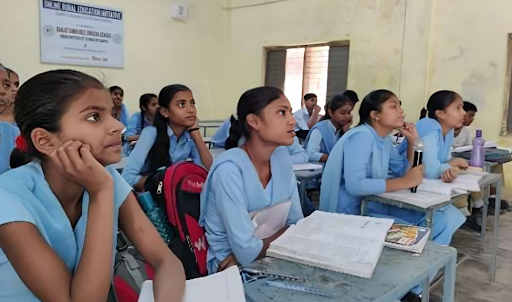
OREI classes being attended by students of Shri Ram Janki Inter College, Bithoor
Launch of YouTube Channel
To broaden access to quality learning resources, RSK launched its official YouTube channel in February 2025. The platform hosts recordings of online classes, enabling students to revisit lessons at their own pace. These open-access videos also serve as a valuable tool for teachers, supporting classroom instruction and paving the way for innovative teaching models like the flipped classroom approach.
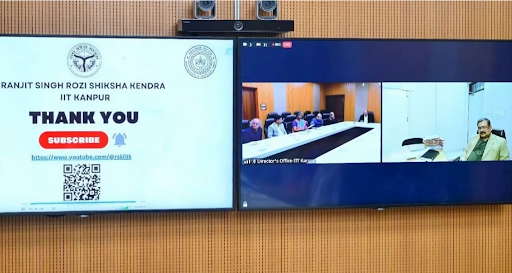
Inaugural address by Additional Director, UP Madhyamik Shiksha Parishad
Educational Tours
RSK organized eight educational tours for government school students, blending hands-on science activities with real-world learning to spark curiosity and inspiration.
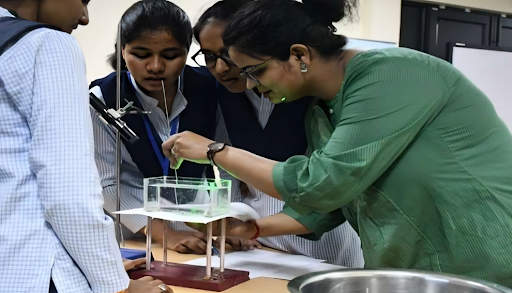
Workshop on Basic Electronics & Arduino
A Basic Electronics and Arduino workshop was conducted in May 2024 for rural students (Classes 8–11), introducing them to circuits, sensors, and coding to spark early interest in engineering and innovation.
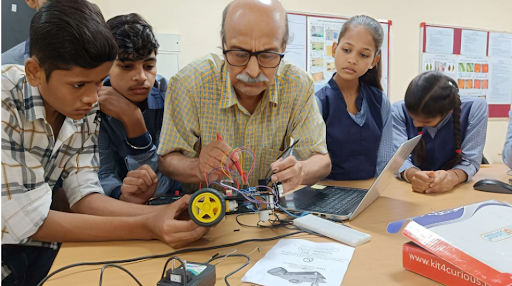
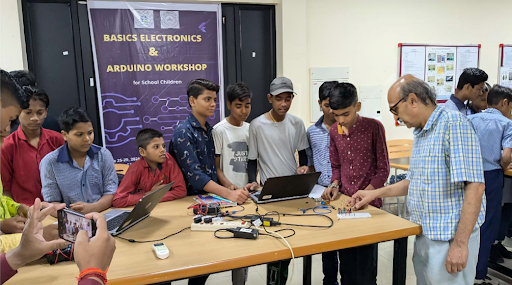
Basic Electronics and Arduino workshop
Launch of Science Kit ( Lab in a Box)
A low-cost Science Kit with 100+ hands-on experiments and video guides was launched to enhance STEM learning in resource-limited schools, supported by SBI.
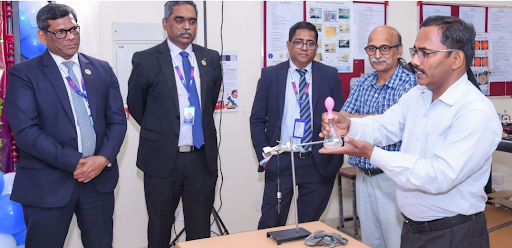
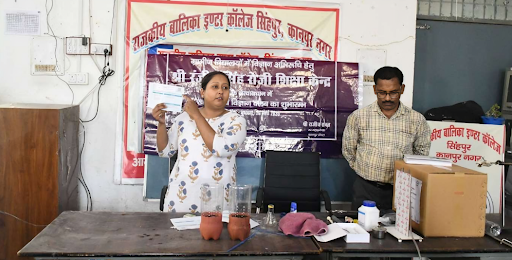
Inaugural of the Science Kit by officials from SBI, and demonstration of the kit by RSK team
Workshops on Astronomy: Night Sky Watching Sessions
A Night Sky Viewing program was held on 2nd October 2024 at Shri Ram Janki Inter College, Bithoor, engaging 75 students in astronomy, with support from IIT Kanpur's Astronomy Club and faculty.
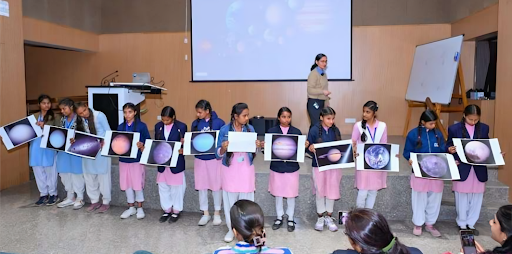
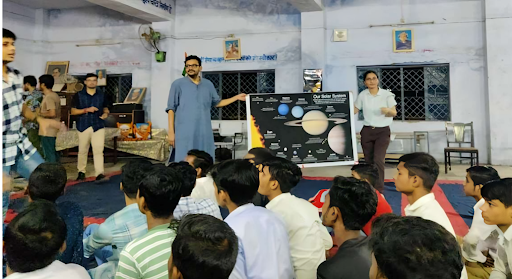
Sessions on astronomy and night sky watching for school children
Establishment of a Design Development Programme
Kalagram, the Design Development Centre at RSK, was launched in September 2024 as a CSR initiative of IPM India to bridge traditional craftsmanship with modern design thinking. Inaugurated in January 2025, it serves as a collaborative space for artisans, designers, and rural entrepreneurs to co-create innovative, sustainable, and market-ready products. Aligning with the One District One Product (ODOP) scheme, Kalagram fosters artisan empowerment through partnerships with institutions like IICD Jaipur, CSJMU Kanpur, and Viswa Bharti, while promoting heritage crafts through design-led interventions and government convergence.
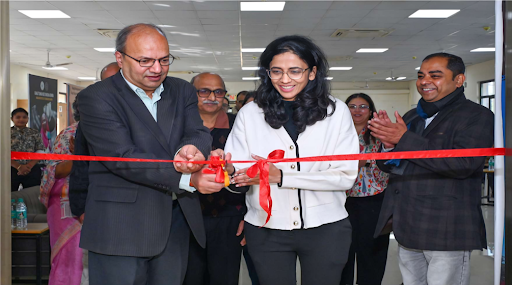
Inauguration of Kala Gram Design Development centre
Pottery Development Initiative of Bithoor:
The Pottery Development Initiative at Bithoor, launched in 2023, aims to revive the region’s fading traditional craft by linking over 100 potters with government schemes and modern design interventions. Now integrated into the Kalagram project, it collaborates with leading design institutions to modernize techniques, enhance product appeal, and restore the livelihood potential of this heritage craft.
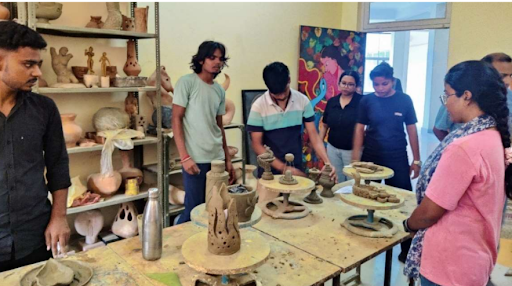
A design competition held jointly by RSK and Dept of Fine Art, CSJMU in Sept 2024
During 2024–25, RSK registered 105 potters through a household survey, organized a design competition at CSJMU, and conducted a hands-on workshop on glazing and kiln techniques. Exposure visits to Khurja and UPITEX were arranged, and potters showcased their work through product catalogues and stalls at the Flower Show and Unnati Utsav at IIT Kanpur.
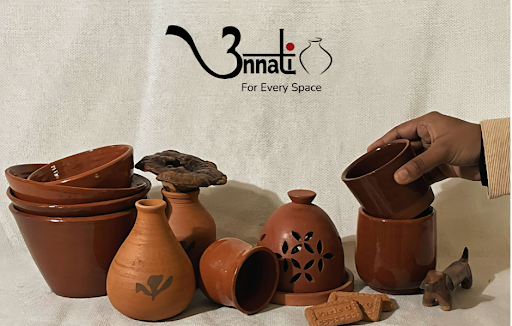
Catalogue of pottery products from the artisans associated with RSK
A proud milestone for RSK’s Design Development project came when its handcrafted pottery was presented as a gift to Hon’ble Prime Minister Shri Narendra Modi, inspiring the artisan community deeply.
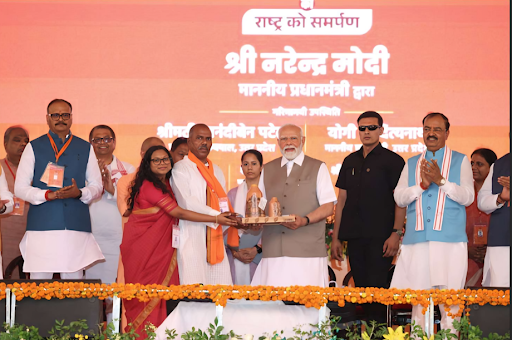
Ceramic designer Ms. Shailly Sangal and potter Shri Ram Shankar Prajapati of RSK presenting a handcrafted pottery gift to the Honourable Prime Minister, Shri Narendra Modi (30th April, 2025)
Home furnishing of Kanpur
RSK’s home furnishing cluster in Kanpur empowered 76 women artisans through design workshops, upcycling projects, and market exposure. Four artisans began their entrepreneurial journey under the CM Yuva Udyami Yojna, while products were showcased at UPITEX, the Flower Show, and Unnati Utsav, reflecting the cluster’s high potential in sewing, embroidery, and sustainable home décor.
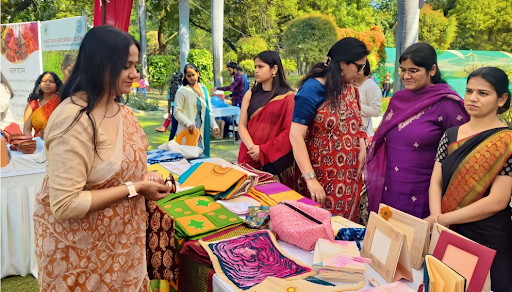
Participation by Artisans in the exhibition at Flower Show IIT Kanpur February 2025
Handmade Paper of Kalpi:
The Handmade Paper (HMP) Revival Project in Kalpi, a GI-tagged traditional craft, was initiated by RSK to restore its lost potential as an eco-friendly, biodegradable product. In collaboration with IICD Jaipur and IIT Kanpur, the project focuses on design innovation, strategic positioning, and artisan training. A total of 58 artisans were registered through a household survey, followed by multiple stakeholder meetings, exposure visits, and a 3-day paper conversion workshop. The Jalaun district administration and RSETI have joined hands for training and revival efforts, while IIT Kanpur is producing a documentary to highlight Kalpi’s heritage craft.

HMP products of Kalpi
Solar Dehydration of fruits and vegetables
In 2024–25, RSK launched a NABARD-supported project on solar dehydration of surplus fruits and vegetables to reduce post-harvest losses and boost rural livelihoods. Implemented across four farming clusters in Kanpur Nagar and Dehat, the initiative trains 56 farmers, especially women in solar-based food processing. IoT-enabled dryers with real-time monitoring via the in-house ‘Solar Netra’ app were deployed. With 50+ dehydration trials, lab testing, packaging, and live demonstrations conducted, the project is paving the way for sustainable, tech-driven micro enterprises in agriculture.
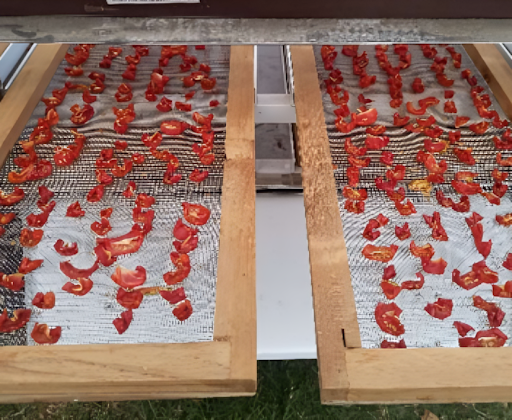
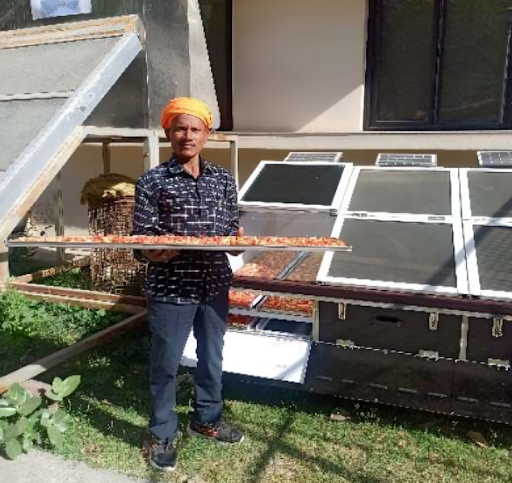
Scenes from the workshop conducted on solar dryer and address by agriculturist Shri Satish Subhedar, and demonstration by farmer on drying of tomatoes Skilling of rural youth
Skilling of Rural Youth
With NABARD's support, RSK trained 172 rural youth in leather stitching and sewing machine operations across 7 batches in 2024–25. Through hands-on sessions, soft skill development, and On-Job-Training at Prachi Leathers, 153 trainees completed the course. Partnering with industry leaders and NSDC-affiliated Pratham Education, the program aligns with national skilling goals and is helping youth gain employment, explore entrepreneurship, and step into economic independence with confidence.
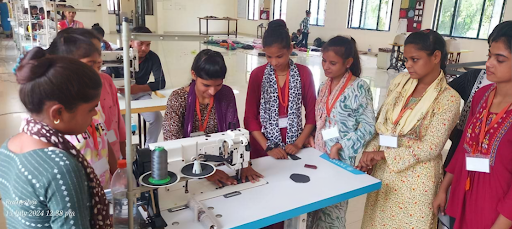
Training being given at RSK IIT Kanpur
Unnat Bharat Abhiyan
As both a Participating Institute (PI) and Regional Coordinating Institute (RCI), RSK actively led UBA initiatives in 2024–25. The flagship event Unnati Utsav 2025 held on March 1–2, brought together 25 PIs, 100+ villagers, and experts to discuss rural transformation and women empowerment. Key exhibits showcased innovations in organic farming (ZBNF), rural health, online education, artisan products, and a Smart Dustbin built using Arduino by Rajkiya Mahila Polytechnic, Mahoba.
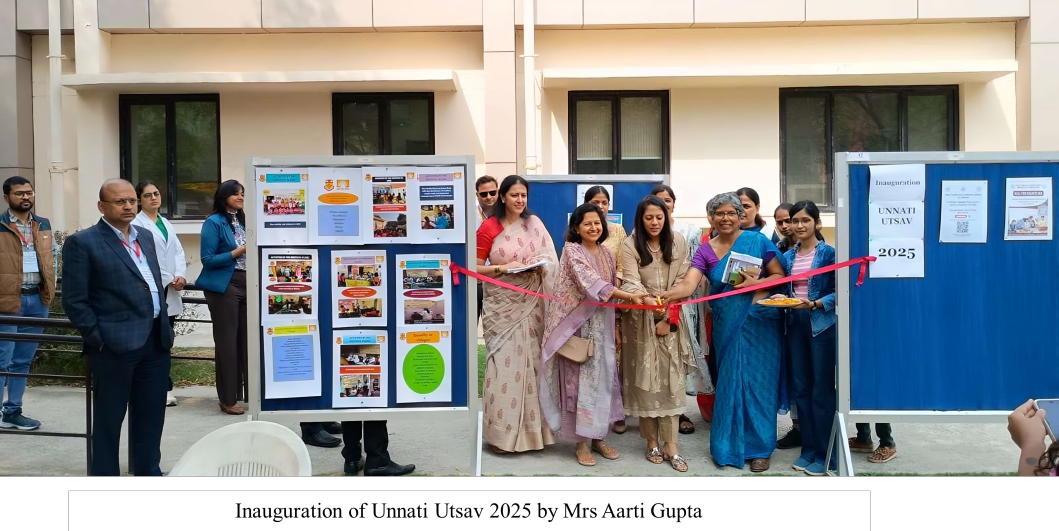
Inauguration of Unnati Utsav 2025 by Mrs Aarti Gupta
Tree Plantation Drive; Ek Ped Ma Ke Naam
On 13th August 2024, RSK joined various PIs in celebrating Independence Day through a tree plantation drive and painting competition under the campaign ‘Ek Ped Maa Ke Naam’, with activities held at Government High School, Baikunthpur.
Gram Sabha
- On 2nd October 2024, the UBA team of IIT Kanpur participated in the Gram Sabha at its adopted village Hridaypur, engaging 900 villagers, faculty, students, and officials from the Panchayati Raj Department and NRLM in a collective dialogue on rural development.

Scene of gram sabha at Hridaypur panchayat 2024
